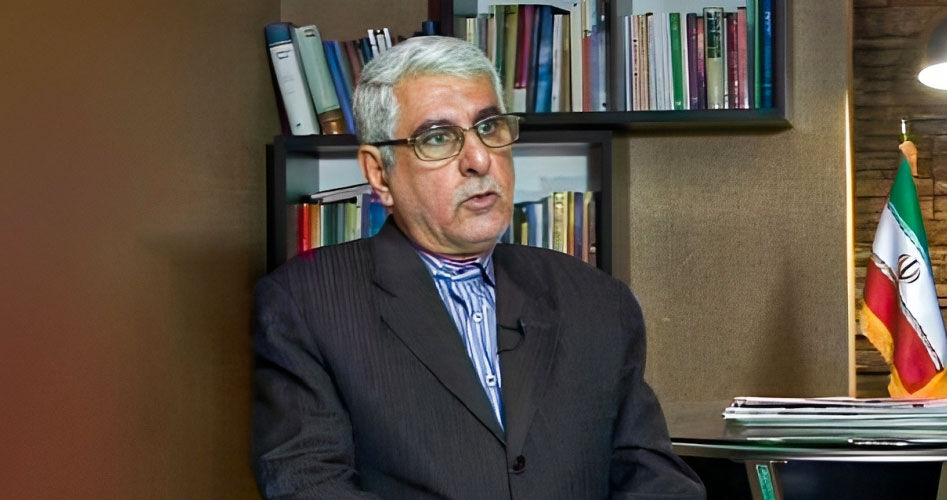Alwaght- After hemming and hawing and six months of Israeli genocidal war on Gaza and martyrdom of over 32,000 Palestinian civilians, the UN Security Council on Monday passed a resolution calling for an immediate ceasefire in Gaza during the holy month of Ramadan, unconditional release of all Israeli prisoners, and facilitation of humanitarian aid delivery to the enclave.
14 countries voted in favor, while the US abstained from voting and avoided vetoing it just contrary to the previous times.
Israeli envoy to the UN Gilad Erden claimed that the resolution demands ceasefire without condition of release of prisoners. This Israeli diplomat added that the resolution undermines the efforts to release them.
Voicing his discontentment with the resolution, Erden said that all the UNSC members should have voted against this "shameful resolution."
The US has already vetoed three draft resolutions of the Security Council on the Gaza war. The country has also previously abstained twice, allowing the Security Council to pass resolutions aimed at increasing aid to Gaza and calling for a long-term cessation of hostilities.
Russia and China also vetoed the draft resolution proposed by the US on the Gaza conflict twice, once in October and again last Friday. Israeli Prime Minister Benjamin Netanyahu canceled a planned visit to Washington of an Israeli delegation.
Shortly before the start of the Security Council meeting, Israel Army Radio reported that Netanyahu had planned to cancel the delegation's trip to Washington if the US refused to veto the resolution.
Alwaght has discussed the details of the recent UNSC resolution with West Asia affairs expert Hassan Hanizadeh.
Alwaght: What are outstanding points of the new United Nations Security Council’s resolution to help end Gaza war?
Hanizadeh: It can be said that the recent resolution, which faced the US abstention, is a belated one coming after 170 days of Gaza war. The resolution contains a demand for start of ceasefire from the beginning of the holy month of Ramadan, but it was passed in the middle of Ramadan, and it faced the Israeli opposition and Netanyahu canceled high-level delegation visit to the US. They openly declared they will not commit to the resolution. Over the past 24 hours, the Israeli regime has attacked Gaza and Rafah in the south several times, and this means that it does not accept this resolution. But, indeed, this resolution will push the Israeli regime into an international isolation, though despite the United States abstention, the American and Western supports to the Israeli regime will keep flowing.
Alwaght: Will this resolution mount international pressures on the Israeli regime and force it accept the ceasefire talks?
Hanizadeh: The intention of the Israeli regime is to gain more concessions in future negotiations. One of the preconditions of the Israeli regime to accept the ceasefire is negotiating the future of Gaza and how to manage this region, which Israel says should be managed jointly by Tel Aviv and the Palestinian Authority. Another precondition of the Israeli regime is that the resistance groups, namely Hamas and Islamic Jihad, must evacuate Gaza and lay down their weapons. The Israeli regime seeks to wrest more concessions in the next stages if a ceasefire is arranged and negotiations are held.
Alwaght: The central issue for Gaza now is delivery of humanitarian aid to the war-stricken civilians. How will this resolution influence the aid case?
Hanizadeh: The Israeli regime has repeatedly announced that it will not allow humanitarian aid to reach Gaza. According to this resolution, aid should enter Gaza through the Rafah border, although Israel is expected to resist the entry of aid. The recent statements of the United Nations Secretary-General Antonio Guterres who strongly criticized the Israeli regime show that the international community, and not only the Islamic countries, is seriously seeking to end the war and siege.
Alwaght: An earlier draft resolution of the US was vetoed by China and Russia, and before that, the US several times vetoed the draft resolutions backed by these counties. How and why was there a consensus on the recent resolution?
Hanizadeh: The United States several times stated that Rafah invasion is a red line, and the UN warned about the catastrophic consequences of attacking the city given the large number of the displaced civilians sheltering in the city. But Israeli officials have repeatedly said they will seize Rafah in the next stages. This issue has caused divisions between Tel Aviv and Washington. Also, it should be taken into account that the US is heading to an election and the two candidates, Biden and Trump, are seeking support of the Zionist lobby for their presidency and have so far granted major privileges to the Israeli regime and backed it by advanced weapons. But the public opinion pressures in the United States and European countries and emergence of gaps between the United States and Europe motivated the US flexibility to this resolution and avoiding use of its veto right.
Alwaght: can we consider allowing this resolution to pass a message from Biden to Tel Aviv? How effective was the Islamic and Arab countries' pressures on Washington in passing this resolution?
Hanizadeh: As it is obvious, the position of the United Nations and the United States is highly shaky in the eyes of the global public opinion, and Washington abstained from voting in a demonstrative move to mend its image and prestige. The US policies were boycotted by the world community since the latter is provoked by them. Actually, Washington’s fear is that the Muslim nations will take political actions against the United States. The Americans had no choice and so did not use their veto right against the recent resolution.



























